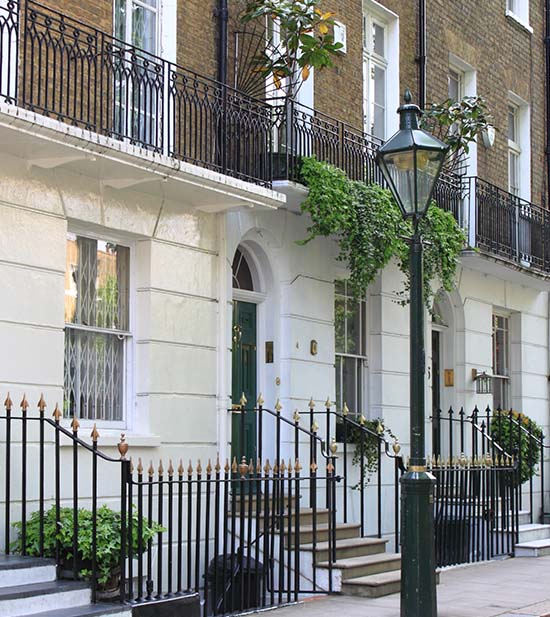Finance Bill
Annual Residential Property Tax (ARPT)
Valuations can be carried out in accordance with RICS Valuation Standards “Red Book”
Finance Bill – Annual Residential Property Tax (ARPT)
ARPT is an annual charge on residential properties valued over £2 million and owned by certain “non-natural” persons (broadly companies, partnerships including companies and collective investment vehicles) and will be effective from 1 April 2013 with certain reliefs available.
ARPT will apply to a UK situated residential dwelling, which may be all or part of a residential or mixed use property, for example if the residential dwelling is part of a larger property including non-residential parts (e.g. a penthouse flat above an office block) then the property to be valued will be the residential part only or if the property consists of a number of self-contained dwellings (e.g. a block of 10 self-contained flats), then each dwelling will normally be separately valued.
The value of the property interest which will be relevant for ARPT for the five years from 1 April 2013 is proposed to be the value of the property interest on 1 April 2012 if the interest was owned on that date, the value on acquisition if the interest is acquired later, or the value on any later creation or cessation of a relevant subordinate property interest.
Property valuations for the annual charge will be self-assessed by the persons liable to the charge and submitted to HMRC as part of their annual charge tax return and HMRC will have powers to enquire into returns and also to make assessments so that non-compliance can be effectively challenged. Property owners may, as part of their ARPT return, provide a professional valuation report and the provision of this information should reduce the number of cases where HMRC needs to make enquiries.
Non-natural property owners will need to establish that they come within the charge band and where they are in doubt may wish to obtain a valuation report providing a valuation of their property at 1 April 2012. A valuation provided to a taxpayer by a suitably qualified valuer of real estate would normally protect the taxpayer from possible penalties, should it be subsequently established that their property has been significantly undervalued, a self-valuation would bear a higher risk of not providing such protection. Non-natural persons who believe they own a residential dwelling below, but in the region of, £2 million pounds may be liable to penalties if they fail to take proper care to establish a correct valuation on the appropriate date, and the property interest is in fact worth more than £2 million.
The valuation should provide a specific price and the amount of ARPT is calculated using a banding system based on the value of the property.
From 1st April 2013 NNPs owning properties worth over £2 million will be subject to an Annual Residential Property Tax (ARPT) at the rate of:
£2million – £5million – £15,000
£5million – £10million – £35,000
£10million – £20million – £70,000
£20million+ – £140,000
ARPT will be index linked annually to the CPI and will run from 1st April to 31st March annually, with the bands remaining constant. The initial valuation date is 1st April 2012 or the date of purchase, if later, and properties will have to be valued every five years.
There will be various exemptions to this ARPT with further details being released in January 2013. To date the government has stated that ‘genuine businesses’ carrying out commercial activity are excluded from the charge.
Relief from the annual tax will be available for properties:
1. Being developed
2. Run as rental businesses
3. Used to trade
4. Open for use or enjoyment by the public at least 28 days a year on a commercial basis
5. Which provide staff accommodation
6. Held by charities for charitable purposes
7. Farmhouses which are of a ‘character appropriate’ to the land being farmed and are occupied by farm workers
8. Diplomatic and other publically owned properties
First returns have to be filed by 1st October 2013 and thereafter by 30th April each year. Relief will have to be claimed annually.
Capital Gains Tax
Another measure is the introduction of Capital Gains Tax (CGT) on NNPs sold on or after 6th April 2013. The tax will be 28% on properties over £2m, with taper relief on any property valued just over the £2m threshold. Up until then we understand sales are CGT and IHT (Inheritance Tax) free. CGT will be on gains accruing after 6th April 2013 so the property value at this date will become critical in years to come.
We understand that property owned by NNPs will continue to benefit from IHT exemption, for the time being.
Those NNPs holding property worth over £2m will only come within the scope of the new capital gains tax charge if they pay the ARPT. This should be welcome news to landlords who will be subject to reliefs as they rent their properties to third parties.
Stamp Duty Land Tax
As laid out in the budget, any property purchased for more than £2m bought in a corporate vehicle will be liable to Stamp Duty Land Tax (SDLT) at 15%. Those who qualify for the reliefs set out above however will pay the normal 7% SDLT at this level as long as the property is not occupied by a ‘non-qualifying person’ in the three year period which follows.
To assist taxpayers in compiling their tax return, HMRC will offer a pre-return valuation checking service to property owners. Property owners will be able to submit their proposed valuations to HMRC for checking and in any case where a proposed banding cannot be accepted HMRC will advise the taxpayer and enter into discussions to endeavour to agree the appropriate banding. HMRC has indicated that the pre-return valuation checking service will only be available to those who reasonably believe that their property valuation falls within a 10 per cent variance of a banding threshold.
HMRC also have a web page which may be of interest: click here to view



